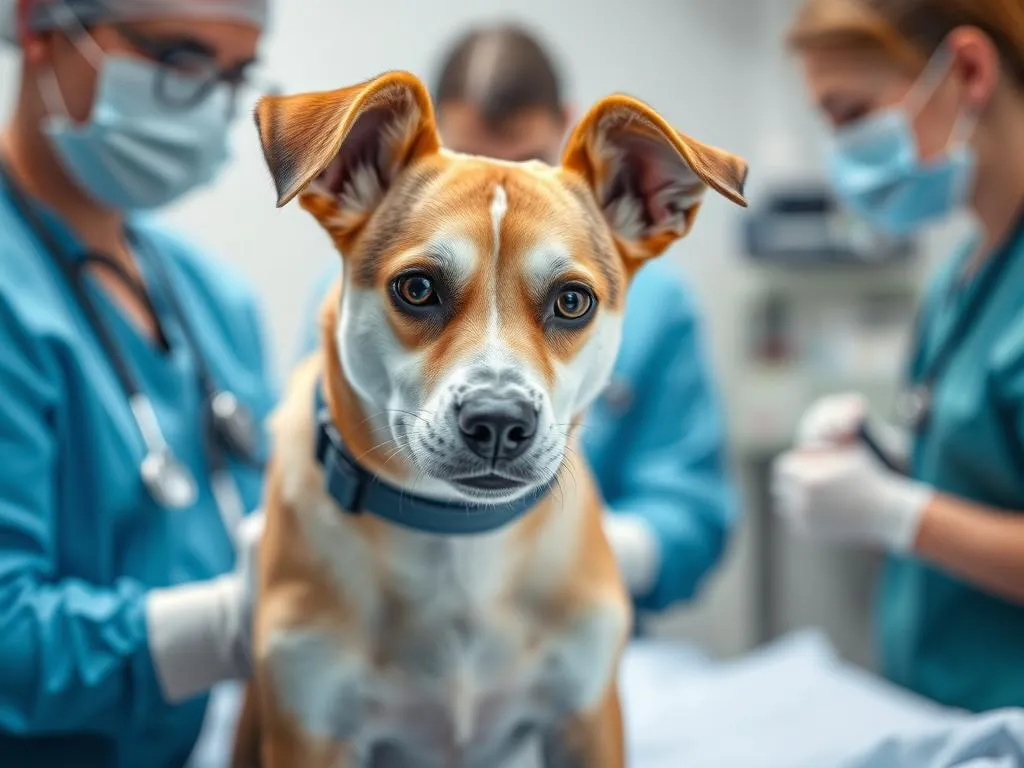
Preparing your dog for surgery is an essential part of ensuring their safety and well-being. Among the various pre-surgery protocols, fasting is a common practice that raises many questions among pet owners. Do dogs have to fast before a surgery vet answer? This article provides clear and vet-approved information regarding the significance of fasting for dogs prior to surgical procedures.
Understanding Fasting Before Surgery
Definition of Fasting
Fasting, in the context of surgery, refers to abstaining from food and sometimes water for a specified period before undergoing anesthesia. This practice is crucial for the safety of your dog during surgical procedures. There are generally two types of fasting: complete fasting, where the dog refrains from all food and water, and liquid fasting, which allows the dog to consume clear liquids but not solid food.
Importance of Fasting
Fasting is essential for several physiological reasons when preparing dogs for anesthesia. When a dog eats, food occupies their stomach, which can lead to complications during surgery. If a dog vomits while under anesthesia, there is a risk of aspiration, where food or liquid enters the lungs, potentially causing severe respiratory issues.
Additionally, an empty stomach helps to reduce the likelihood of nausea and vomiting post-surgery, leading to a smoother recovery. Thus, fasting minimizes risks and ensures that your dog has the best possible outcome during and after the surgical procedure.
General Guidelines for Fasting
Recommended Fasting Duration
The recommended fasting duration can vary based on the type of surgery and the age of the dog. Generally, most veterinarians suggest fasting adult dogs for a minimum of 8 to 12 hours before surgery. For puppies, fasting is often shorter due to their unique physiological needs; they may require fasting for just 4 to 6 hours.
It’s essential to follow your veterinarian’s specific recommendations, as they may adjust the fasting duration based on the type of anesthesia used, the nature of the surgery, and your dog’s overall health.
Exceptions to the Rule
While fasting is generally recommended, there are exceptions. Dogs with certain health conditions, such as diabetes or obesity, may have different fasting requirements. For instance, diabetic dogs may need to be fed to maintain their blood sugar levels, while an obese dog might be allowed to eat before surgery to prevent complications related to fasting.
It’s crucial to discuss your dog’s health history with your veterinarian, who can provide tailored advice regarding fasting.
The Role of the Veterinarian
Pre-Surgical Consultation
A pre-surgical consultation is an invaluable opportunity to discuss fasting and other preparatory measures with your veterinarian. During this appointment, your vet will assess your dog’s overall health, discuss the specifics of the surgery, and address any concerns you may have. This is also the time to clarify any confusion about fasting and to ensure you follow the correct procedure leading up to surgery.
Customized Fasting Recommendations
Veterinarians understand that every dog is unique, and they tailor fasting guidelines based on individual needs. Factors such as age, breed, health status, and the type of surgery can influence fasting recommendations. Adhering to your veterinarian’s customized advice is essential for ensuring your dog’s safety and well-being during surgery.
Signs That Your Dog is Ready for Surgery
Behavioral Indicators
As the surgery date approaches, it’s essential to monitor your dog’s behavior. Signs of readiness may include calmness and a decrease in appetite, as your pet may naturally sense the upcoming procedure. On the other hand, if your dog appears anxious or exhibits changes in behavior, it’s vital to consult your veterinarian for guidance.
Health Assessments
Prior to surgery, veterinarians conduct thorough health assessments to ensure your dog is fit for the procedure. This may involve blood tests, physical examinations, and other diagnostic measures to evaluate your dog’s overall health. These assessments help to identify any potential risks associated with anesthesia and surgery, ensuring that your dog is well-prepared.
Post-Fasting Care
Reintroducing Food
After surgery, reintroducing food should be done cautiously. Generally, veterinarians recommend offering small amounts of water and a bland diet, such as boiled chicken and rice, approximately 12 to 24 hours after the procedure. It’s crucial to follow your vet’s specific guidelines, as each dog may have different recovery needs.
In the beginning, avoid giving your dog rich or fatty foods, as these can upset their stomach post-surgery. Gradually reintroducing their regular diet will help ensure a smooth recovery.
Monitoring Recovery
Post-surgery, it’s essential to monitor your dog’s recovery closely. Look for any signs of complications, such as excessive vomiting, lethargy, or unusual behavior. If you notice anything concerning, don’t hesitate to contact your veterinarian. Early intervention can make a significant difference in your dog’s recovery.
Common Myths About Fasting Before Surgery
Myth vs. Fact
There are several misconceptions surrounding fasting before surgery. One common myth is that fasting is unnecessary if the dog is healthy. In reality, fasting is a standard precaution that helps mitigate risks associated with anesthesia, regardless of the dog’s health status.
Another misconception is that fasting can lead to low blood sugar in dogs. While prolonged fasting can cause issues, the typical fasting duration before surgery is designed to ensure that dogs remain safe and healthy.
Importance of Reliable Sources
When seeking information about pet care, it’s crucial to rely on qualified professionals. Veterinary associations and licensed veterinarians provide accurate information grounded in science and experience. Avoid relying solely on anecdotal evidence or online forums, as misinformation can lead to unintentional harm to your pet.
Conclusion
Fasting before surgery is a critical component of ensuring your dog’s safety and well-being. Understanding the significance of this practice, alongside consulting with a veterinarian, helps pet owners make informed decisions. By following the guidelines provided by your veterinarian and preparing adequately for surgery, you can ensure a smoother experience for both you and your beloved dog. Responsible pet ownership involves proactive care, and preparing for surgery is no exception.









